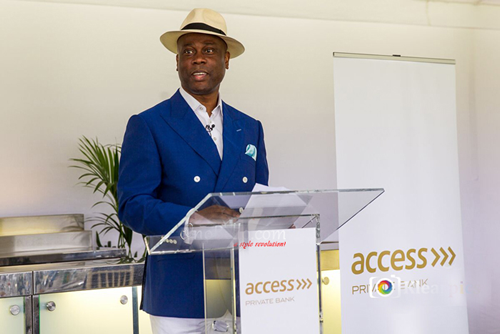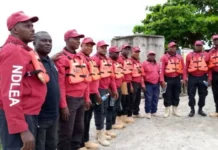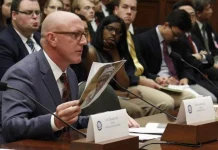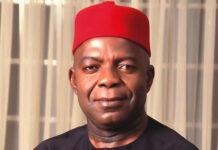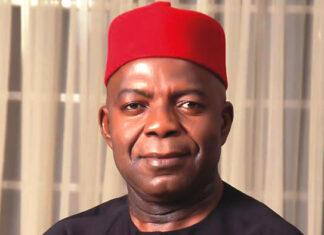The banking industry will make a huge donation of cash, vehicles and equipment to the Nigerian Army, Police and other law enforcement agencies in the next few weeks to support the Federal Government’s fight against insecurity, Herbert Wigwe, Access Bank’s Group Managing Director and Chief Executive announced to shareholders at its 32nd AGM in Lagos over the weekend. Going by its track records in Corporate Social Responsibility and philanthropy, Access Bank will provide a good chunk of the contribution. This would be a major private sector intervention to stem the tide of insecurity in the country. “We are very concerned about the safety and security of Nigerians. We want our people to be safe. Access Bank will partner with our colleagues in the industry to support the federal government in this regard,” said Wigwe in his answer to the various comments and questions raised by the shareholders.
Last year alone, the bank invested N10.25 billion in various CSR efforts, working with 43 NGOs across 194 communities and impacting 28,540,046 lives. Through its Employee Volunteering Scheme, the bank’s workers devoted over 2,781,443 hours of their time, talents/resources in over 514 strategic community initiatives across the six geopolitical zones.
In addition, the bank gave out N3 billion cash to various organisations, NGOs and even state governments, including my own state, Akwa Ibom, for one form of relief or another. The bank was also a major contributor to the CACOVID initiative in which players in the nation’s private sector donated food items worth N30 billion as palliatives to Nigerians during the 2020 COVID-19 lockdown. “Through CACOVID, we reached 10 million Nigerian homes. And you ask yourself what if we didn’t do it. Perhaps, we would have lost more people,” the GMD said.
Goodness and kindness have always been in the bank’s DNA. “Even when we were a small bank about 20 years ago,” Wigwe recalls, “we launched and funded a project called Gift to Africa in which Access Bank made millions of naira worth of contributions to fight the HIV/AIDS pandemic. We were so actively involved in fighting HIV/AIDS early on that some people even thought that we had the disease,” eliciting laughter from the shareholders and staff of regulatory agencies at the AGM.
Wigwe noted that because of COVID-19, last year was particularly challenging to most Nigerian families and with security challenges enveloping the country in the last several months, the misery and desperation have been compounded. The banking industry, he asserts, therefore stands shoulder to shoulder with the federal government to tackle the security problems.
Wigwe urged Nigerians to take the COVID vaccination as it is the surest assurance against getting sick or death. His words: “With the new strains ravaging India, it is dangerous not to take the vaccine. These things could just arrive our shores any moment.”
It is so important and reassuring to note that our banking industry is identifying with our national aspirations to contain insecurity and other social problems. I am particularly glad that Access Bank has been quite exemplary in this area. It is all the more comforting to observe that as Access Bank is growing bigger and bigger, it is becoming kinder and more compassionate.
This year marks the 19th year since Wigwe and his friend and business partner, Aigboje Aig-Imoukhuede, bought Access Bank and assumed full ownership and management. Over the years, the bank has spent billions of naira to fund various CSR initiatives and philanthropic programmes.
The lender has also grown in leaps and bounds, rising as a very small nondescript player to the top five in Nigeria as at December 2020. Last year, its balance sheet hit N9 trillion, up from N7 trillion. Gross earnings rose by 15 per cent from N667 billion to N765 billion, while after tax shot up from N94 billion to N106 billion. All other indicators also went north. Customers Deposits, N4.25 trillion to N5.58 trillion (31% climb); total assets, N7.14 trillion to N8.67 trillion (22%) and shareholders’ funds from N607 billion to N751 billion (24%).
Board Chairman, Dr. Ajoritsedere Awosika, a retired federal Permanent Secretary, was obviously pleased as she presented the 2020 Annual Reports & Accounts to the investors and regulatory authorities Friday morning. Explaining the impressive performance, Awosika said: “Velocity of customer activities was strong across all our business lines, compensating for the impact of lower yields on gross earnings. Access Bank made several investments to strengthen relationships with its customers in the year. By redefining our approach to customer service through streamlining our internal processes, and digitising about 30 per cent of customer journeys, we were able to improve on our customer experience.”
The AGM was conducted in strict compliance with COVID-19 protocols, but there were enough shareholders with the requisite portfolio holdings to form a quorum for the meeting. Most others also participated virtually from all corners of the country. Among the shareholders physically present were Sir Sunny Nwosu and Dr. A. Farook. I have known both men as major players in our capital market and shareholder activism since I was a finance journalist over 30 years ago. Together with the late Akintunde Asalu, they took delight in haranguing directors at AGMs in those days.
But last Friday, they had nothing but praises for the directors of Access Bank for such a sterling showing for FY 2020. The first shareholder to speak after the Chairman’s statement was read was Dr. Eric Akindoru, representing Ibadan Shareholders Association, the biggest investors’ forum outside Lagos. He commended the bank’s Board and management for focusing on technology and business expansion through acquisitions, especially in Africa.
The bank has subsidiaries in The Gambia, Sierra Leone, Ghana, DR Congo, Zambia, Rwanda, Mozambique, Kenya, South Africa, United Kingdom, with representative offices in Lebanon, China and India. Even the UK subsidiary has its own subsidiary in UAE. I understand that Access New York is in the offing! No wonder Wigwe quipped in his remarks: “Access Bank is becoming Africa’s gateway to the world,” noting that the subsidiaries are helping to promote intra-Africa trade.
Next to speak was Sir Nwosu, who represented 920,000 shareholders under the Independent Shareholders Association. Chief Nwosu commended the bank for “a good job well done”. He spoke extensively on the issue of unclaimed dividends, dormant accounts and restricted deposits and condemned the federal government’s plans to acquire them. He praised the Board and Management for driving down NPL (non performing loans) from 5.8 per cent to 4.8 per cent and making a recovery N34 billion.
On the issue of NPL, the GMD condemned some unscrupulous customers in the industry who are unwilling to repay their loans. “They come to the banks and beg for these loans, go around the country and parade themselves as successful businessmen, but in real life, they are bad debtors, unwilling to repay their obligations; thus putting the banks in jeopardy,” said Wigwe.
The meeting was winding down when Dr. Farook spoke, and he focused his brief remarks on abuse of insider credit. It was only the previous day that the Central Bank of Nigeria had sacked the Board of First Bank of Nigeria Limited for poor management of loans granted a major shareholder. Aware that delinquent insider loans have been responsible for the death of many a Nigerian bank, Farook asked the Board of Access to ensure that no director of the bank fails to honour his or her obligations as at when due.
Access Bank has grown meteorically in the last 19 years. With 566 branches in Nigeria and 15 subsidiaries and representative offices in Africa and some other parts of the world, Access has become a financial powerhouse in our continent. For the future of the bank, the GMD noted that it is “best positioned to maximize the identified opportunities in Africa on the back of a growing customer base and move to a cashless economy”. I am highly honoured to have been invited to be part of the 32nd AGM.
Etim, a former staff of Access Bank, writes from Abuja.



